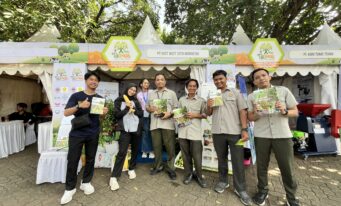

Started in October 2021, Yayasan Bina Tani Sejahtera (YBTS), supported by William & Lily Foundation (WLF), create a program focusing on elevating the source of income among farmers Livelihood Agricultural Project (Program Peningkatan Mata Pencaharian Pertanian / PERMATA). The program aims to maximize the economic potential of farming groups in Southwest Sumba Regency. It was implemented in three subdistricts: Western Wewewa Substrict (Pero Village, Kabalidana Village, and Weemangura Village), Central Wewewa Substrict (Weekokor Village, Kanelo Village, Weepatando Village, and Weerame Village), and Tambolaka City Substrict (Wee Londa Village and Wee Rena Village).
PERMATA is set to be in motion until September 2023. The program is currently focusing on training 112 farmers in Southwest Sumba Regency. One of the YBTS coordinators, Junike Susan Medah, stated that PERMATA had successfully improved the farmers’ skills, knowledge, and economic condition. However, Junike thought that PERMATA still had room for improvement. “We are still struggling with several issues, such as optimizing business potential, marketing, administration & financial management, and implementing good agricultural practices.”
To optimize the potential of farmers in Sumba, PERMATA also collaborated with the national research center (Badan Riset dan Inovasi Nasional / BRIN) to perform research regarding the farming potential and the resources needed. The research project was carried out by three researchers from BRIN Nusa Tenggara Timur research center: Dr. Bernard deRosari, S.P., M.P. (Center of Behavioural and Circular Economic Studies); Dr. Ir. Tony Basuki, M.Si. (Center of Farming and Food Studies); and Ir. Yohanis Ngongo, M.Sc., Ph.D. (Center of Econology and Ethnobiology Studies).
The analysis included studies on technological implementation, socio-economic analysis of farming business, the potential for farming diversification, and many other subjects. The result of this study was expected to help many decision-makers, including YBTS, to provide recommendations and training that would be more suitable to the farmers’ needs and conditions. We hope that PERMATA can help improve the farmers’ livelihoods and the farming industries in Southwest Sumba Regency.